Au Pairs love to travel. If you’re an Au Pair, one of your motivations for joining the program might’ve been a love for the USA. Your desire to get out and see the world can be infectious, and can even cause your Host Family to start exploring more.
And if you’re a Host Family, you may be wondering what you can do to help your Au Pair have fun and stay safe on vacation.
In this article:
- Au Pair travel requirements
- Why Au Pairs should travel during their stay
- How Au Pair travel benefits Host Families
- How to plan budget-friendly vacations
What Families and Au Pairs Need to Know About Travel

Logistically, Au Pairs can travel anywhere in the U.S. However, if an Au Pair wishes to travel outside the U.S., certain requirements must be fulfilled first:
- Au Pair’s DS-2019 must be travel validated. Travel validations are good for up to one year.
- Research the requirements for traveling to your country of choice. Some countries require an additional visa.
- Depending on your country of origin, you may need an additional visa to visit Canada.
- As long as you have a valid J-1 visa, travel to Mexico does not require an additional visa. You do, however, need to obtain a Tourist Card.
- Go Au Pair recommends researching travel requirements every time you travel. Regulations change often, and traveling unprepared can leave you stranded.
Without a travel-validated DS-2019, Au Pairs cannot re-enter the U.S.
Why should Au Pairs travel?

Purpose & spirit of the Au Pair program

The U.S. Department of State has said that the Au Pair program not only serves as a valuable cultural exchange experience for participants but also meets vital foreign diplomacy goals.
The core purpose of the program is to allow Au Pairs to experience life in the U.S. They gain insight into life inside an American home, and they learn about our culture.
Exposure to other areas is a key aspect in achieving this experience. After all, one family’s home, one city in the U.S., does not represent the entire country or culture.
 Benefits to the Au Pair
Benefits to the Au Pair
Traveling teaches Au Pairs many things, including:
- Independence & responsibility
- Stepping outside of their comfort zone
- Budgeting before & during a trip
- Quick thinking when things go wrong
- Cultural differences within the USA
- Diversity of U.S. culture
- That nothing looks the way Hollywood portrays it in the movies (haha… but really)
Benefits to the Host Family

Marina, from China, loves being an Au Pair and travels all over the USA at the urging of her Host Parents.
“I travel to lots and lots of places,” Marina says. “Because my Host Family, they said they love me traveling, and I can bring [home] positive effects.”
Her Host Mom, Brooke, believes in cultivating the positive vibes that result from travel.
Plus, Marina’s spirit of adventure sets an example for the kids, something Brooke hopes her girls will emulate as they grow up.
“I can share– what did I do, what did I see– with the girls,” Marina says.

Cultural exposure was Brooke’s main motivation for hosting an Au Pair in the first place. She purposely hires Mandarin-speaking Au Pairs with teaching experience, due to the cognitive benefits of learning Mandarin at a young age.
Brooke points out that travel also has distinct cognitive benefits. By encouraging her Au Pair to travel often, she knows that her family’s overall experience will be improved.
For new families, Brooke even recommends using the Au Pair search function in Go Au Pair’s Host Family Community. This tool can help you find fun-loving candidates who can uphold your family’s values.
You can search by personality type, language, experience, and other traits.

How families can Help APs travel more
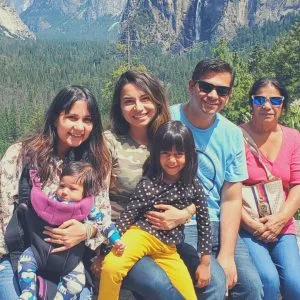
There are many ways Host Families can enhance their Au Pair’s travel experience. Sometimes, Au Pairs feel awkward about traveling too often, so it’s important to let them know you support their goals.
Here are some ways families can help Au Pairs travel more often:
- Offer flexible time off whenever possible.
- Help pay for a flight or share your unused Sky Miles, hotel nights, Airbnb credits, & travel-related coupons.
- Hook your Au Pair up with accommodations with a relative or friend out of state.
- Help your Au Pair understand bus schedules & arrange transportation for their trip.
- If your Au Pair is a safe driver, consider allowing use of your car for a weekend road trip.
- Travel together as a family & bring with your Au Pair along.
- Give your Au Pair a gift card (Airbnb, Delta) for their birthday/ Christmas.
Your support is sure to encourage your Au Pair to prioritize travel and get the most out of their stay in the U.S.
How to Plan a Trip on a Budget

Travel can be expensive. So, to help out, we’ve put together our best advice for planning Au Pair trips that don’t cost a fortune.
Host Families cover all of an Au Pair’s living expenses. This makes it easier for Au Pairs to save most of their pocket money for travel and new experiences.
However, travel in the USA can be expensive, so here are some travel hacks for Au Pairs looking to travel in 2020.
1. Plan your trip when flight costs are low
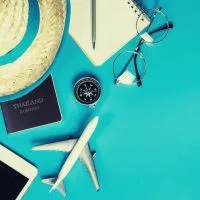 Flight costs vary throughout the year. Research flights with tools like Kayak, and put in different travel dates to see how prices change.
Flight costs vary throughout the year. Research flights with tools like Kayak, and put in different travel dates to see how prices change.
Work with your Host Family to choose a time of year that’s most affordable to travel.
2. Shop for deals in a private browser
Some websites increase their prices if you’ve visited the site or booked with them before. To avoid this, turn on private browsing when you shop for flight and hotel deals.
3. Choose more affordable destinations
 Not all destinations are equally priced. If your goal is to travel more often, you might consider selecting destinations that are less expensive.
Not all destinations are equally priced. If your goal is to travel more often, you might consider selecting destinations that are less expensive.
Ask yourself what your travel priorities are. Is it your life’s dream to visit downtown NYC, and you don’t care as much about other destinations? Or do you want to see as much of the U.S. as possible? This will impact your planning.
4. Research cost-effective housing solutions
There are many cost-effective solutions for housing when traveling. Rather than book a hotel every time you travel, do some research to see what else is available in the area.
Look for hostels or cheaper Airbnb options. If you or your friends know any Au Pairs in the area, you may even be able to stay at someone’s home (if it’s okay with the Host Family too).
If your trip will last a week or more, it can also be cheaper to book an apartment. Find out if there are any apartments or condos available for just a week or two. (This is common in European countries, less common in the U.S.).
5. If possible, fly on Mondays & Tuesdays
Most travelers return home from their vacations on a Sunday evening or Monday. Thus, flights are often cheaper on Tuesdays and Wednesdays (with Tuesday being the cheapest).
It’s also cheaper to fly internationally on a weekday. So whenever possible, plan to leave/ return in the middle of the week.
6. Buy groceries instead of eating out
Eating out every day can be expensive, especially within the U.S. Plan to go grocery shopping shortly after arriving at your destination. Buy foods that are easy to prepare no matter where you’re staying, such as:
- Sandwich supplies
- Fruit, yogurt, & granola
- Rotisserie chicken
- Microwaveable soups and frozen dinners
- Oatmeal or cereal and milk
If you won’t have access to a fridge, you can bring a collapsible cooler and fill it with ice after you arrive.
Be sure to check on the amenities you’ll have during your stay, such as a fridge, microwave, hot water, or a coffee maker (can be used for hot water if you don’t have access to a stove).
7. Travel in groups
You can save a lot of money by traveling in a group. You can split the cost of a room, buy groceries together to reduce cost, or buy Groupons for activities or events you want to try when traveling.
8. Bundle education & travel costs
Au Pair travel tours are a great way to find low-cost trips (and get education credits at the same time!)
9. Save Google Maps directions to Offline Mode
Rather than use data during your trip, plan where you’ll be going in advance. Look up directions on Google Maps, then save it to your phone.
Here’s how:
1. Open Google Maps on your phone
2. Click the circle icon in the top right
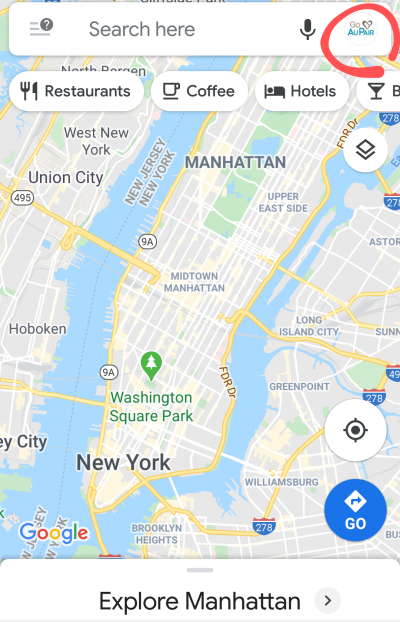
3. Scroll down to “Offline Maps”
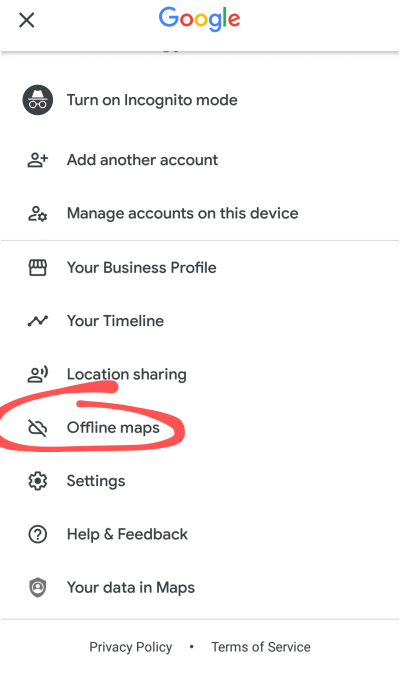
4. Click “Select Your Own Map”
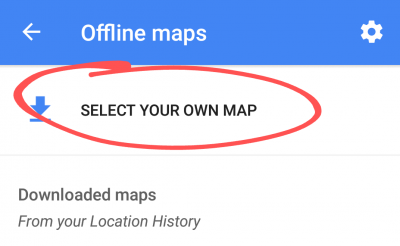
5. Select the area you want & click “Download”
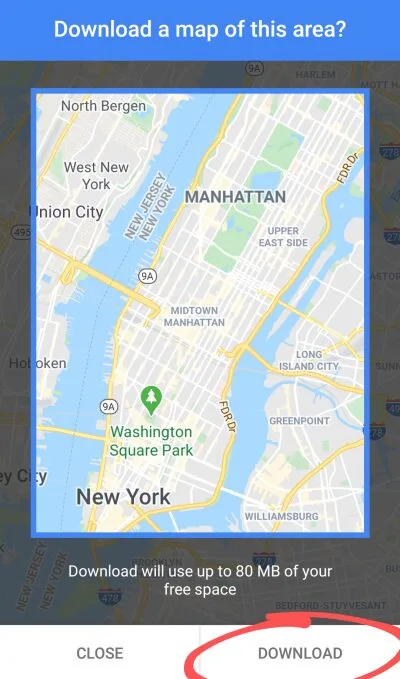
Your map will download & you will be able to navigate even when you’re offline.
You can also bring a mobile hotspot like SkyRoam, which costs as little as $10/ day (and you pay nothing unless you use it).
10. Check fewer bags (or none at all!)
If you haven’t heard of Marie Kondo by now, you’re out of the loop. 😉 Try some of her folding techniques to save space in your suitcase and pack fewer bags.
If you’re really pressed for space, use a vacuum-sealed bag to compress your clothes and make more room. But beware; it’s possible to pack too heavy this way, which can make your suitcase quite cumbersome.
Start Planning Your Trip Today!

With all these helpful travel tips, your next trip is sure to be a success. Start planning your next Au Pair vacation today!
We love to see your travel photos!
We love seeing all of your incredible adventures. Tag @goaupair on any platform. Use #saveJ1 to teach people about the value of your cultural exchange experience.



 Benefits to the Au Pair
Benefits to the Au Pair
